Nowadays, with the competitive marketing strategies that different firms and companies are using, more and more businesses are getting help from marketing and CRM tools to prevent falling behind the others.
Salesforce and Constant Contact are two of the biggest platforms that conquer many marketing and customer satisfaction areas. But which is better? Read on to find out.
Can Salesforce Replace Constant Contact?
Salesforce is a comprehensive and complete CRM platform that caters to the needs of your company’s sales team and makes them work efficiently with commerce, service, IT, and marketing departments. However, if your marketing strategies revolve around email marketing, Salesforce may not be enough to rely on.
Salesforce built-in email provider limits you to 1000 daily sends and 250 contacts per list, making it unsuitable for larger email campaigns.
If you want to get more tools regarding email marketing, send your audience relevant information that suits their interests, you can bridge the gap with a third-party email provider service, like Constant Contact.
In other words, with large-scale emails in mind, Salesforce can’t replace Constant Contact. Plus, when it comes to CRM tools, Constant Contact lacks many features compared to Salesforce. So, they’re strongest when you use them together.
Also read Can Salesforce Replace SharePoint?
Salesforce Vs. Constant Contact Compared
Salesforce is a global CRM platform and also a marketing service provider. It’s a complete powerhouse that lets companies manage their business and maintain, connect to, and grow their customer base.
Constant Contact, on the other hand, operates primarily as an email marketing service provider.
Let’s describe each company’s features and uses, and then compare their differences for a better understanding:
Salesforce
Salesforce uses cloud technology and multiple dedicated apps and software to help businesses understand their customer needs, analyze their behaviors, give them key insights, and keep them happy. Here are the main Salesforce features:
- Offers multiple dedicated apps, including Sales Cloud, Commerce Cloud, Marketing Cloud, Service Cloud, App Cloud, Analytics Cloud, and so on.
- Allows businesses to develop and run applications, websites, and emails without coding on a ready-to-go platform with drag-and-drop capabilities.
- Helps your company’s departments, including marketing, sales, commerce, service, and IT, work and collaborate from anywhere. Salesforce admins can also work remotely.
- Engage customers with relevant and customizable digital marketing by focusing on their individual interests.
- Launch and scale e-commerce built around your customer preference to sell smarter and grow your business.
- Integrate data from different social networking sites and tracking web activity to generate detailed data reports with other representations, including charts, graphs, and pictures.
- Extract customer data and feedback into meaningful information to identify their interests and perception.
- Help reconnect to the inactive or old customers by giving them offers, discounts, and so on.
- Customer management by tracking customer interactions and improving the customer base to increase profits.
Constant Contact
Constant Contact is an online marketing company that focuses on email marketing. It has a friendly and straightforward user interface, and it’s best suited for smaller businesses. Here are its key features:
- Helps with easy creation of professional emails and newsletters with various prebuilt templates.
- Carries built-in tools for eCommerce solutions and developing websites and online stores.
- Offers email managing, tracking, and automation tools.
- Provides list building, audience segmentation, A/B testing, and survey creation tools.
- Offers built-in tools for eCommerce solutions and integrations.
- Social media integrations including Google, Facebook, and Instagram ads.
- Thorough reports and analysis on email marketing performance.
- Dedicated mobile app for managing emails.
Salesforce vs. Constant Contact
As you can see, Salesforce offers a more variegated list of features and covers the whole marketing process, from tracking and collecting data to analyzing it and making plans. It’s a complete CRM platform, while Constant Contact is a marketing tool.
Salesforce has more integration options and more features. Understandably, Salesforce offers more expensive plans than Constant Contact.
Constant Contact is more user-friendly with a better user interface and a more straightforward setup process. It offers better performance, and it’s easier to learn.
Read Salesforce as ticketing system.
Can Salesforce Send Out Emails Without an Emailing Service?
Yes, Salesforce is capable of sending out emails on its own using its built-in email service. They declare on their website that there’s no need to use external email services for sending out emails, and Salesforce servers can do the job. However, as mentioned, they’re limited in the number of daily sends and contact lists.
Is Constant Contact Owned by Salesforce?
No, Constant Contact and Salesforce are two individual companies with different goals and features in mind.
However, Salesforce can integrate with Constant Contact, and once you sync your accounts in the two platforms, you can use Constant Contact for your email marketing purposes.
Is Constant Contact A CRM?
Customer Relation Ship, or CRM for short, is all the technology and strategies a company uses to understand customer needs better, connect and interact with them, and develop a stronger business relationship to improve profitability.
A CRM system is a shared database between marketing, sales, IT, commerce, and services. It includes multiple tools and features that work with data and ensures that your customers receive the information they need, and email marketing is one of them.
Constant Contact mainly focuses on being an email provider, and although it has some additional CRM capabilities, it still lacks many key features, and you can’t call it a CRM.
What Are the Best Emailing Services for Salesforce?
Suppose you’ve decided to house your sales and marketing data in the Salesforce platform and bring your email marketing to a third-party email provider service. In that case, you first have to choose between native and non-native applications.
A native ESP will operate entirely within the Salesforce platform, and you won’t have to transfer the data and learn to work with another software. A non-native ESP will integrate with Salesforce but run on its own.
Two of the best native applications are iContact and ExactTarget. iContact connects with Salesforce campaigns well and is easy to use.
The drawbacks are that you can’t segment your email subscriber list, and you’ll have to use it globally, and iContact doesn’t allow you to create email templates directly. It all happens within the Salesforce app.
Plus, if you already have an iContact account, you can’t convert it into a Salesforce account. You’ll need a new account dedicated to the cause.
ExactTarget has a large volume capacity, and it lets you segment your contact list. It carries Drip campaigns and marketing indicators, but it’s more expensive than iContact.
The best non-native platforms are Constant Contact and Mailchimp. Both are capable tools that can cater to your email marketing needs and more. Continue reading for a detailed comparison between these two ESPs:
Which Is Better: Mailchimp Or Constant Contact?
Mailchimp is a web-based marketing automation platform that helps companies connect to their customers, partners, clients, and other interested parties through email.
Mailchimp has tried to expand its feature set and add more CRM tools in the past few years, as well. If you’re interested in a complete Salesforce and Mailchimp comparison, this article will help.
Mailchimp Pros
- Committed and reliable business with many useful features.
- The freemium plan gives you a subscriber list of 2000 with a monthly send limit of 12000 emails for free.
- User-friendly interface and simple drag-and-drop tools for building professional email newsletters, websites, and online stores.
- Email automation tools for better customer targeting, also usable for Google, Facebook, and Instagram ads, coupons, and postcards.
- Email scheduling and testing tools on different interfaces.
- Capable tools for creating custom landing pages, surveys, and polls for emails.
- List management and segmentation options and geotargeting capabilities.
- Thorough reports about your campaign’s work history and intelligent suggestions for improvements.
- Good support for paid plans.
- Easy setup and sync with Salesforce.
Mailchimp Cons
- Expensive Premium Plans.
- No support for the free plan.
- Not Affiliate Marketing Friendly.
- Additional costs for Sync App to connect with Salesforce.
As mentioned before, Constant Contact is an intuitive email marketing software that has a few additional CRM tools. We’ve mentioned its features before, and here are its pros and cons for compression.
Constant Contact Pros
- A 60-day free trial option with no obligations, and the paid plans are less expensive than Mailchimp.
- Easy creation of professional emails, newsletters, websites, and online stores with various prebuilt templates and simple tools.
- Email managing, tracking, and automation tools.
- List building and audience segmentation tools.
- A/B testing tools.
- Survey and poll creation tools.
- Built-in features for eCommerce and Social media solutions and integrations.
- Thorough reports and analysis on email marketing performance.
- Email testing across devices.
- Unmatched support through email, phone calls, live chat, community support, and so on.
- Easy setup and sync with Salesforce.
Constant Contact Cons
- Needs additional time to transfer email lists.
- Data doesn’t flow back to Salesforce.
- Not a fully-fledged SMTP platform.
If you want to choose between these two platforms for use as independent marketing tools, Mailchimp is a better option because it has more advanced CRM features and can handle email marketing.
However, if you want to use an ESP with Salesforce, Constant Contact would be better. With Mailchimp and Salesforce together, you’ll have two CRM tools with similar features, and you’ll end up paying unnecessary bills.
Read more Salesforce Vs Mailchimp.
Final Thoughts
Deciding on a CRM tool and an email service provider can be complicated, especially with all this different software on the market.
You need to consider your company’s needs, budget, and goals. The brand you choose should be reliable, fair in pricing, and filled with practical and customizable features. Keep in mind that a well-oiled company needs both a capable ESP and a CRM tool.
Using them individually won’t bring your company’s potential to its true levels.



